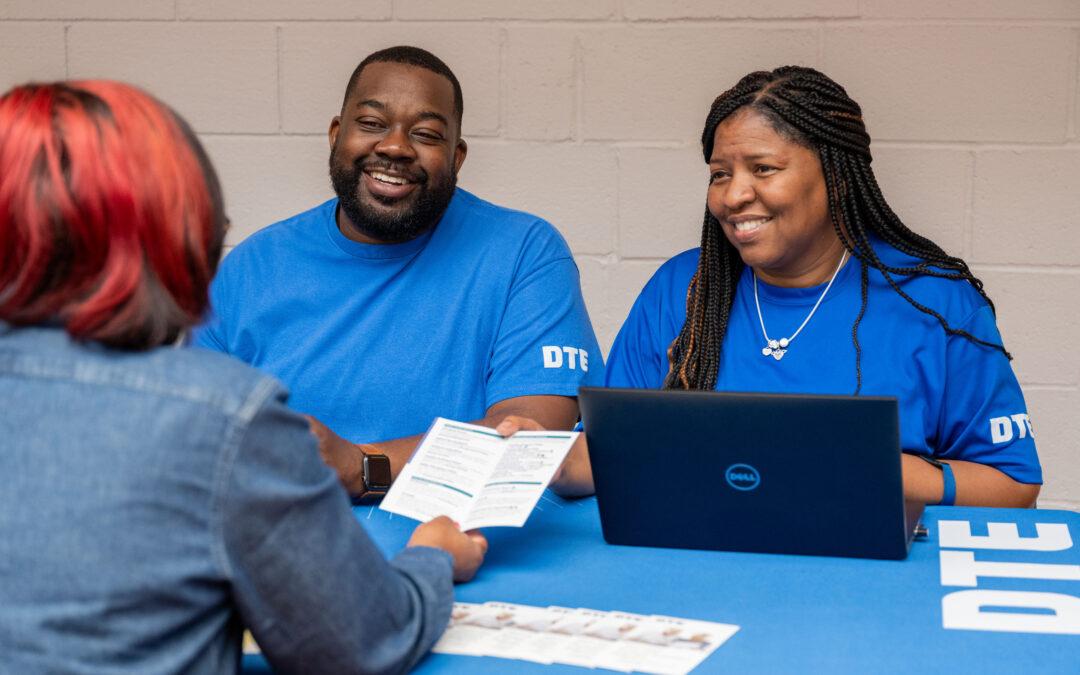All of us at DTE are keenly aware – just as all of you are – that nearly everyone has been affected by the rising costs of living, from groceries to everyday services, but especially the most vulnerable in our communities. According to a recent report by the Michigan Association of United Ways, 39% of Michigan households struggle to afford the basics like housing, childcare, food, transportation, healthcare and utility bills. Many of those that fall within this 39% are considered part of the asset-limited, income-constrained and employed – or ALICE – population. Customers in ALICE households work every day in essential, but lower paying jobs, and do not make enough to cover basic needs. For example, today, a family of four making $50,000 a year doesn’t qualify for many assistance programs. Something has to change.
Many Michigan households have long relied on the Michigan Energy Assistance Program (MEAP) and the Low-Income Home Energy Assistance Program (LIHEAP), however the need for these programs has grown significantly in recent years. According to data from United Way’s 2-1-1 helpline, energy assistance consistently ranks among the top three requests every month in any given year, however, the majority of the state’s programs today require customers to be at or below 150% of the Federal Poverty Guidelines – many in the ALICE population fall just above that. Even still, most energy assistance initiatives are not effective at sustainably reducing energy bills to an affordable level, leaving customers in a continuous cycle of crisis.
Additionally, state and federal assistance programs are often quickly depleted. Just earlier this year, State Emergency Relief funding ran out in June when it is intended to last through the end of September.
It’s important that we act now to support the vulnerable among us. That’s why at the state and federal level, DTE is working to remove structural barriers to get help to those who need it.
Through the Coalition to Keep Michigan Warm – a group of more than 120 human service agencies, religious organizations, and businesses from across Michigan – we are continuing to work on several legislative and policy actions, including the passage of three bills that will increase funding and expand eligibility for bill assistance programs.
- Senate Bill 880 proposes doubling MEAP funding from $50 million today to $100 million in five years, allowing the funds to serve twice as many customers.
- Senate Bill 353 will increase the eligibility of MEAP funds so that any Michigander at or below 200% of the Federal Poverty Level would be eligible. Today, that threshold is 150% of the Federal Poverty Level.
- Senate Bill 881 ensures that if the MEAP fund is not spent in a fiscal year, it will result in a lower surcharge for the following year. It also ensures that as much as possible, MEAP funds will go back to low-income customers of the geographical area where the funds were generated.
These bills have passed the Michigan Senate and are now in the hands Michigan House of Representatives. We ask you to join us in creating change by urging your representatives to vote yes on these bills to ensure everyone who needs assistance receives it.
